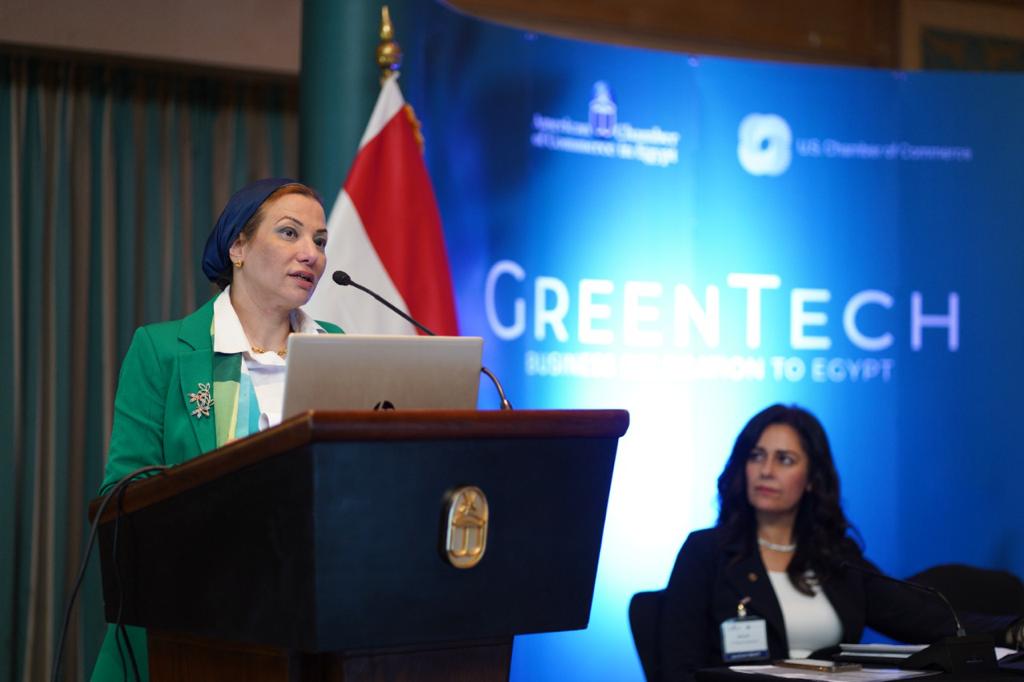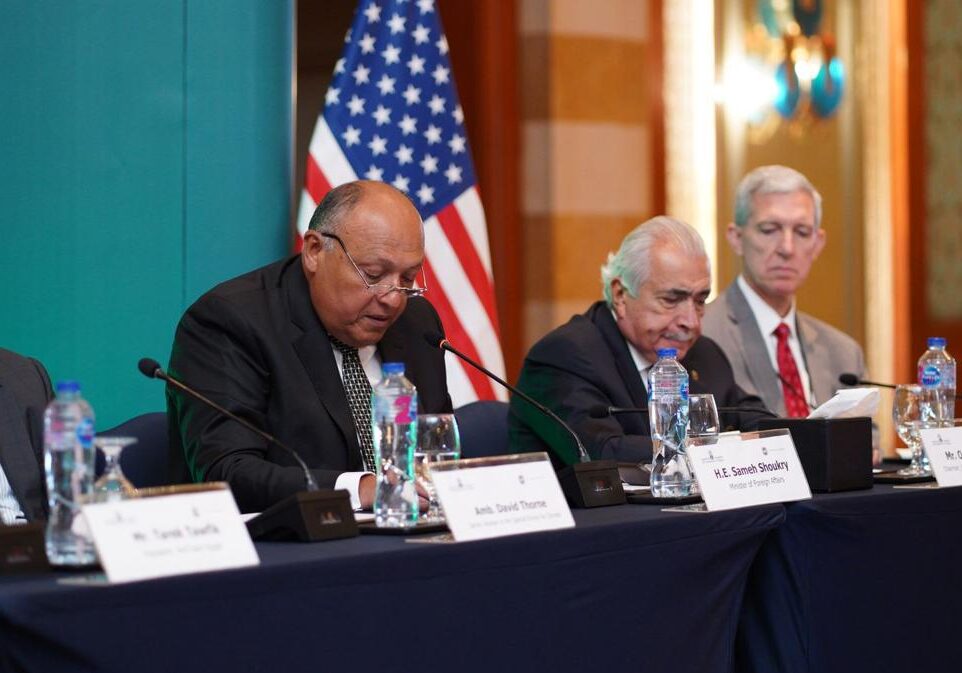Egypt’s first-ever U.S. GreenTech Business Mission saw early results with Minister of Environment Yasmine Fouad inking two agreements with American companies that will ultimately reduce Egypt’s carbon emissions.
Waste management and renewable energy company Energy3 International signed on May 15 an MoU with the environment minister to build a recycling facility in Fayoum that will convert municipal and agricultural waste to biodiesel and graphene, averting 500,000 tons of annual CO2 emissions from landfilling solid waste.
On the same day, Fouad signed another MoU with environmental safety firm Okeanos to build a $50 million factory that will manufacture plastic alternatives from limestone. The facility will be built by Okeanos Egypt, a joint venture with local company Income Egypt, and produce eco-friendly alternatives to single-use plastics.
The U.S. GreenTech Business Mission to Egypt was held May 14-17 and organized by the American Chamber of Commerce in Egypt (AmCham Egypt,) the U.S Chamber of Commerce and the Office of the U.S Special Presidential Envoy for Climate.
The mission’s delegation included American investors, policymakers, eco-friendly financiers, and technology companies who met with Egyptian companies and government officials to learn about partnership and investment opportunities in sectors ranging from energy to healthcare, agriculture, aviation, construction and water resource management.
Policies for green incentives
Egypt announced an ambitious plan in October 2021 to make 30% of all government projects green by 2024, says Fouad during her ministerial roundtable meeting with the American delegation. “This is a very bold decision … towards that, 100% of the nation’s projects by 2030 will implement a sustainability criteria.”
The private sector’s participation is crucial for reaching that goal.
To that end, Egypt is opening space for environmentally-friendly investments. According to Fouad, the new waste management law passed in 2020 requires banks that provide climate financing in Egypt to establish a sustainability unit to discuss and calculate investment risks.
“We defined the priority programs, mainly on energy and transport, because these are also high in emitters of greenhouse gasses, so the government will provide incentives for [these sectors] in the new investment law and executive regulations,” Fouad says.
The environment ministry has also made green hydrogen, electricity-powered mobility, all-waste streams, and alternatives to single-use plastic the focus of private sector green engagement projects.
These programs are part of the 2017 investment legislation aiming to create an enabling environment by offering more land with long-term concession financing, a 50% exemption on equipment, and some customs exemptions.
Room for private sector engagement
“The nexus of water, food, and energy is key in light of prepping for a COP of implementation,” Fouad says.
The Ministry of Environment, in collaboration with the Ministry of Electricity and Renewable Energy, has established a $10 billion scheme to replace five gigawatts of natural gas-fired thermal power facilities with renewable energy. The initiative also intends to expand Egypt’s renewable energy output to 10 gigawatts, lowering greenhouse gas emissions by 22 million tons per year.
Egypt is also designing a bus rapid transit (BRT) system to reduce reliance on private vehicles by connecting Cairo’s 106-kilometer Ring Road to Greater Cairo. Construction on the first 10 sections began in January, and operations will start in June. This project costs $217 million, with the private sector receiving a concession in the capital’s sustainable transportation buses.
In addition, the government is launching a $625 million renewable-based desalination project, which Fouad describes as “a very good model of linking adaptation and mitigation” by using solar energy to power water desalination stations. The private sector will develop six of these desalination facilities in Marsa Matrouh, Alexandria, Port Said, and the Red Sea governorate.
In the agriculture sector, Egypt has launched an $800 million effort to grow strategic crops in the Nile Delta area, which is vulnerable to heatwaves and other extreme climate events. The country is also building a $950 million sustainable farming project based on an irrigation system employing cost-effective water techniques. The two initiatives would benefit around 25 million people.
Egypt is committed to providing all the means and tools to fulfill its global obligations. “COP27 is our COP collectively,” Fouad says. “Egypt will spare no effort in making it an inclusive one.”







